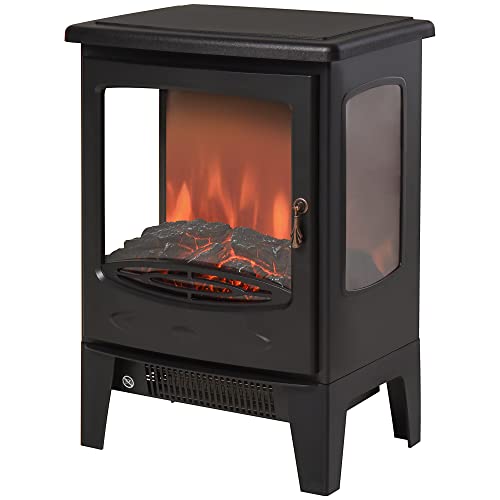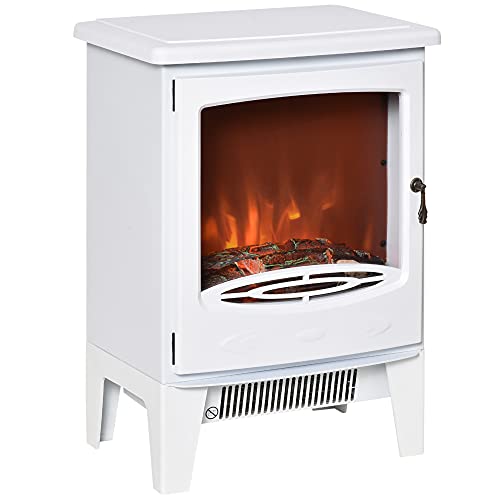Fireplace Surround Is The Next Hot Thing In Fireplace Surround
페이지 정보

본문
 Choosing a Fireplace Surround
Choosing a Fireplace SurroundWhether you use fireplaces for warmth or aesthetics, the perfect surround can give your living room personality. It can be difficult to choose the right fireplace surround that is both safe and compliant with the code.
These custom-built surrounds are made of non-combustible materials that adhere to the National Fire Code. They can look great in any style of home.
Simple Concrete Surround with Marble Slabs
A fireplace surround can be a focal point of the room and can add warmth and charm. It can be made from a variety of materials, and designed to suit a variety of design styles. It is important to think about the design of the room as well as the budget before choosing the style of the fireplace surround.
Marble fireplace surrounds offer an elegant look that is compatible with various styles of design. They can be combined with rustic woods or more modern metals to create a unique, contemporary design. Marble is relatively simple to maintain and is able to withstand extreme temperatures, Fireplace Electric making it an ideal choice for a fireplace surround.
Stone is a popular material for fireplace surrounds. It has a timeless appearance that works in many homes. It can be carved or etched for an updated look or left unfinished to give it a traditional feel. Stacked stone veneers can be used to add texture and depth to the interior of a room.
Granite is a very sought-after option for modern surrounds around fireplaces. It's tough and able to stand up to heat well. It's also available in a range of colors and patterns, making it a great choice to create various styles of design. Quartzite can be molded and shaped to fit an upscale surround.
Installing a concrete surround for a fireplace may be a possibility for DIYers. This project may seem daunting, but it can be more simple than you imagine when you collaborate with professionals and prepare ahead.
It's also a good idea to speak with a professional when creating a fireplace surround made of marble since it requires special care to avoid damage. A skilled carpenter will help you avoid costly errors.
If you're planning to use tile for your fireplace surround, make sure it's approved for high-temperature use. You'll typically find this information on the package or inquire with an employee at a home improvement shop.
Leaning Frame Surround
The fireplace surround is a crucial design element that can transform the whole space. It's not just visually pleasing, but also serves a practical function. It protects the wall surrounding the fire place from damage and reflects heat back into the space. It's available in a variety of materials and can be made to match any style or decor.
The right choice of material is crucial to achieving a deliberate aesthetic. Concrete is a great choice because it is strong and non-flammable. It also has a lot of visual appeal due to its natural texture and colour. It's typically poured into a mold, giving you the ability to create a unique shape for your fireplace surround.
Layers are crucial when creating your leaning frames. This makes the piece appear more planned and curated rather than being thrown randomly on the wall or shelf. Leaning frames can be dangerous, so if you're planning on displaying heavier objects, such as vases or lamps, place a small piece of drawer liner made of rubber under the base to prevent them from slipping or damaging surfaces.
If you're using a concrete or marble surround, think about adding a wooden board on the bottom to hold it in position. It will also help reduce the weight and stop the object from shifting while you sip your cup of coffee or wine in the front of your fireplace.
Once you've decided on the material for your frame's leaning frame then it's time to begin making the actual piece. First, mark the wall you're building with the dimensions of your frame and then use a saw to cut cleats on each of these points. Ensure that the top cleat is at least 1 foot shorter than the shelf.
Next, freestanding fireplace screw the brackets onto the wall. Make sure that the bolts go through the backer board, and into the nail. If needed, drill the screw holes. After that, temporarily secure the mantel to the backer board. Attach the mantel to the studs with lag bolts (2-4 bolts per stud). Make sure that the bolts are strong and long enough to cover the entire thickness of the backerboard plus 2/3 of the mantel's depth.
Black Firebox Surround
Fireplace surrounds serve a practical and decorative role. They shield walls from heat damage and help deflect some heat back into the room, and can create a fireplace that is an attraction in a space. The most common materials used for fireplace surrounds are wood and metal. Metal surrounds can be required by building code to guard against nearby combustible substances or they can improve the look of a fireplace.
The fireplace stove in this contemporary living space features an all-black firebox with white marble accents. The stone is more expensive and requires more care than wood, yet it adds an eye-catching design aspect to the room. The black finish also ties to the dark hues of the furniture as well as the wood flooring to create a unified appearance.
While you may think of concrete as sidewalks or driveways, it is a very flexible and attractive material for fireplace surrounds. It can be formed into custom shapes and poured in place, allowing for nearly limitless design options. The concrete surround has been shaped into a curving profile which gives it an elegant, modern appearance that contrasts with the darker shades of the wood floor and brick wall.
Wood is another popular material used for fireplace surrounds. It comes in a variety of textures and colors that can be incorporated into any style of decor. Wooden surrounds can be crafted in any shade to match your hearth pad. They are less heavy and more affordable than the masonry surrounds. The majority of wooden surrounds can accommodate household decor above the mantel, including vases and lamps.
Certain wood surrounds come with faceplates that cover the top of the mantel and houses doors for fireplaces. This plate can be hung to the mantel using hinges or decorative fasteners that mimic the look of iron.
When choosing a mantel made of wood fireplaces or metal fireplace surround, it is important to think about the height of your chimney. To avoid a fire spreading to your home, building codes specify minimum clearances. This distance can vary depending on the kind of fireplace you own and also from state state or country country.
Simple Wood Surround
There are many options for surrounds to give your fireplace a traditional style. Certain surrounds are constructed of solid oak, while others incorporate stone legs with oak or pine mantels. You can also select pine or oak fire surrounds, which are designed to be an affordable and easy option.
Many people choose to purchase a pre-made wood fireplace surround because it is an affordable way to get the style they want without having to hire carpenters. Some pre-made pine surrounds come with a variety of finishes that allow you to make them fit with your existing decor.
Another popular type of wood fire surround is one that is hand-crafted from high-quality oak. This can be stained in a light oak color or left untreated to let the natural golden brown of the wood to show through. The fireplace surround can be used with gas or wood fireplaces. It comes in two different styles: arched or flat.
For those of you who have a bit more experience with DIY home improvement projects, there's a wealth of tutorials available online to assist you in creating your own wood fire surround. One example is this thorough step-by-step guide by H2O Bungalow that teaches you how to construct a rustic inspired wood surround using pine.
The tutorial teaches how to construct the horizontal component, and then the vertical pilasters which support the mantel. Once the pilasters or columns are finished then you can place your mantel. Finally, the tutorial will show you how to install the crown molding which will cover up any gaps between the cladding and the wall.
 Since a wooden fireplace surround is made of combustible materials, it is important that you follow your local fire code and keep it 6 inches away from the edge of the chimney opening. Use a non-flammable glue to join the decorative molding to the surround and make sure it remains in the correct position.
Since a wooden fireplace surround is made of combustible materials, it is important that you follow your local fire code and keep it 6 inches away from the edge of the chimney opening. Use a non-flammable glue to join the decorative molding to the surround and make sure it remains in the correct position.- 이전글Étirements pour Soulager la Fasciite Plantaire : Techniques et Conseils 24.11.07
- 다음글The Patio Doors Repair Near Me Mistake That Every Newbie Makes 24.11.07
댓글목록
등록된 댓글이 없습니다.


